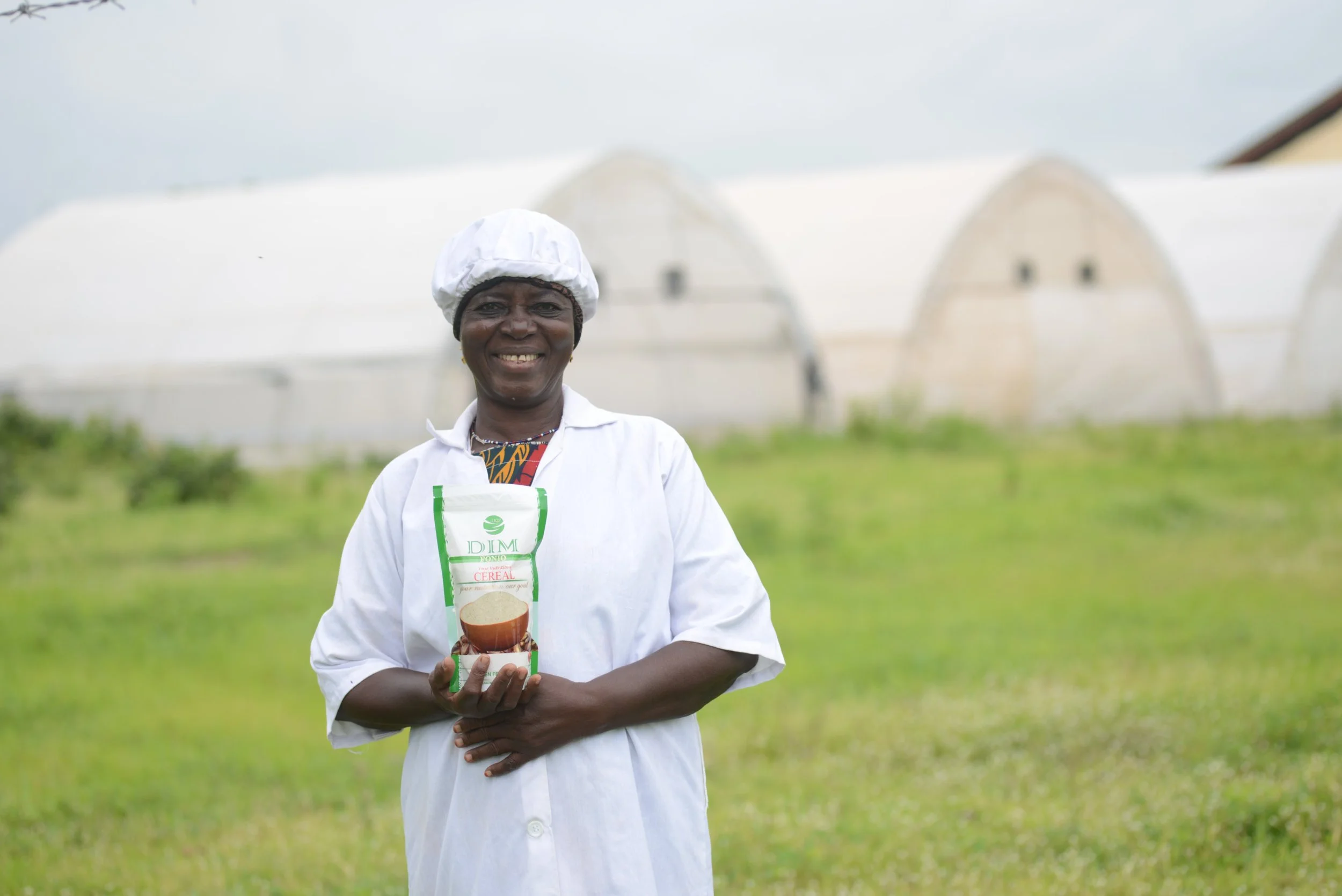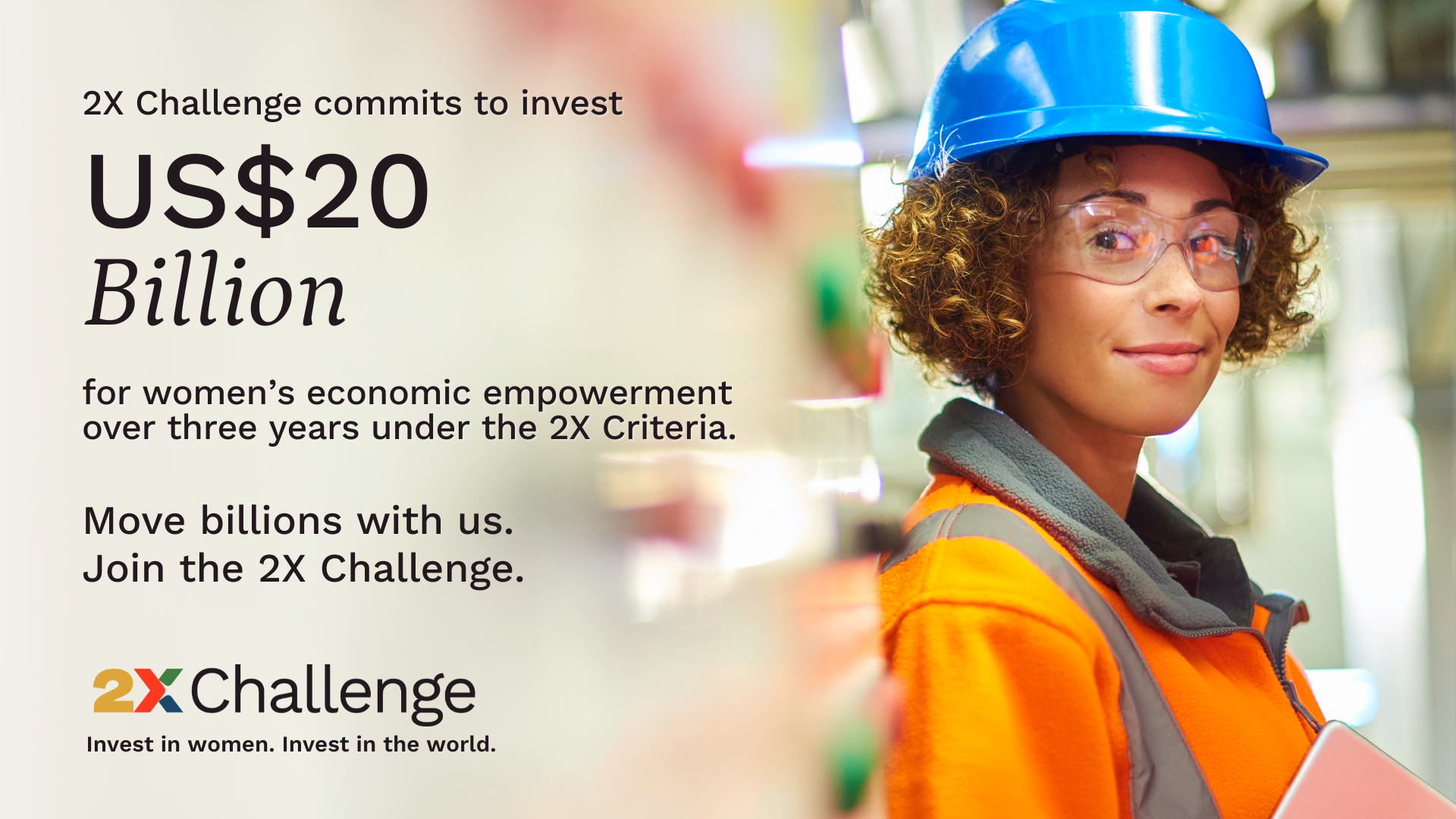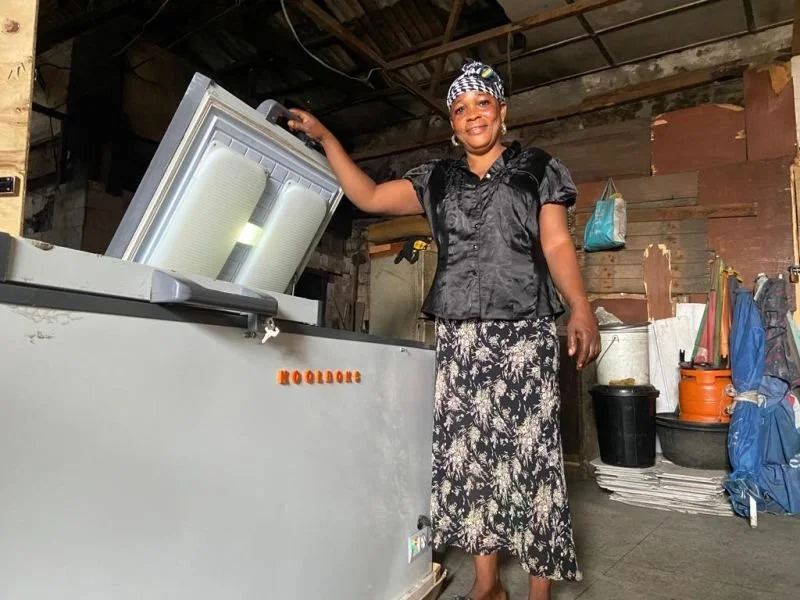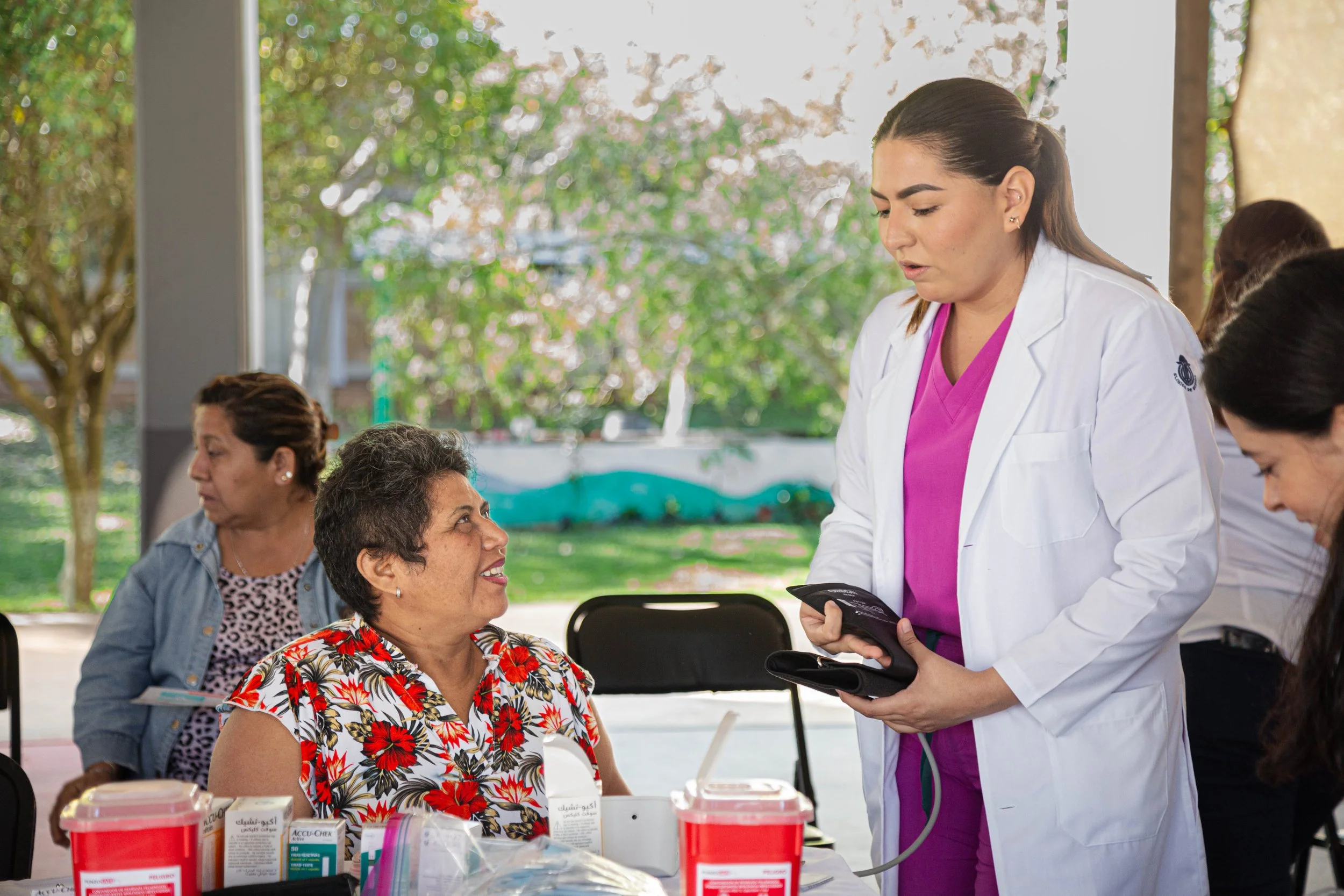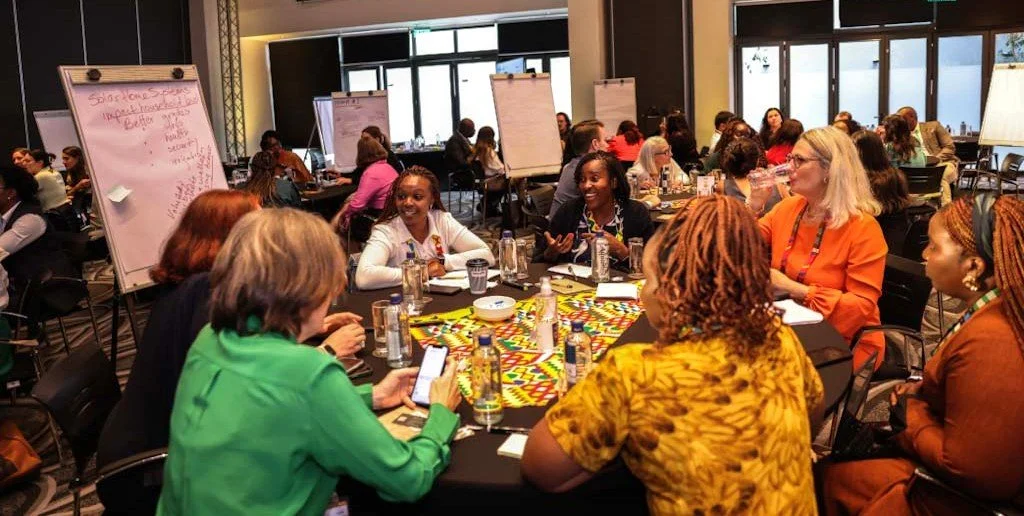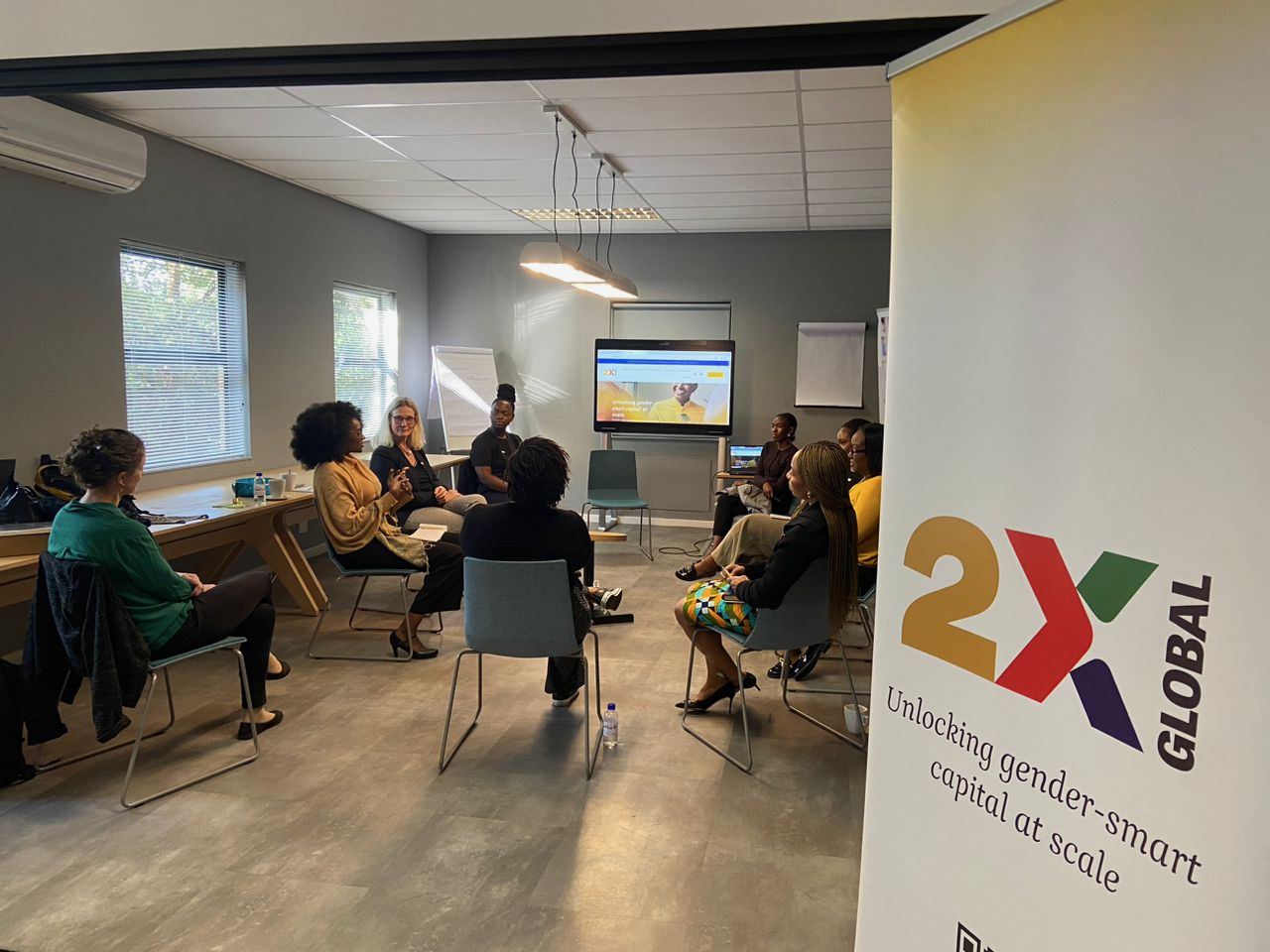
Field notes
Conversations with gender lens investing practitioners about their investment journeys, challenges, and reflections.
The women making Africa’s food systems more resilient
Over a third of working women worldwide are employed in agriculture and food systems, playing a critical role in global food security. Despite this, female farmers receive less than 10% of agricultural loans, a persistent barrier to gender equality in agrifood systems. This is compounded in smallholder communities with patrilineal inheritance structures that can prevent women from owning land, therefore, lacking the security and decision-making power that comes with ownership.
Beyond the tick box: New DFI portfolio evidence shows impact of gender lens investments under the 2X Challenge
Since its launch in 2018, the 2X Challenge has mobilised over $33 billion into gender-smart investments globally–built on the assumption that meeting the 2X Criteria delivers real benefits for women.
For the first time, we now have portfolio-wide evidence to test that assumption at scale.
Led by Kore Global, a new synthesis of four independent evaluations—covering 81 unique investments across British International Investment (BII), Proparco, FinDev Canada, and FMO’s portfolios—offers the clearest picture yet of how the 2X Criteria play out in practice. Here is what we found.
Behind the numbers: Spotlight on the 2X Challenge Qualified Investments
What does it really mean for an investment to be “2X qualified”? A 2X Challenge qualified investee is a company, fund, or financial institution that has received investment from a 2X Challenge participating investor and meets the 2X Criteria. Behind each qualification lies a unique journey, an inspiring business case, and a vision for inclusive, sustainable finance and growth.
“It’s the highest-performing investment strategy in the startup ecosystem”: 2X Global Australia Ambassador Roo Harris on the opportunities of GLI
“It’s the highest-performing investment strategy in the startup ecosystem”: 2X Global Australia Ambassador Roo Harris on the opportunities of GLI
Changing the Narrative from Concession to Catalyst: The Business Case for Investing in Women
Female entrepreneurs receive just a fraction of the available capital in private markets, and in Africa, the gap is especially stark. In 2024, female founders on the continent secured only 2% of total venture funding, the lowest level since 2019. Women-led startups raised just $48 million, while their male counterparts raised nearly $2.2 billion during the same period. This discrepancy exists despite mounting evidence that female-led businesses are not only viable, but they also often outperform. According to McKinsey, closing gender gaps in Africa’s workforce could add $316 billion to the continent’s GDP by 2025.
Redefining Resilience and the Case for Women’s Empowerment
Through the 2X Global Summit 2025, we are collectively confronting a persistent challenge: despite decades of progress, women remain significantly underrepresented in decision-making spaces, in the capital flows that drive innovation and infrastructure, and in the systems that shape how we anticipate and respond to the crises defining our era. This exclusion is not only unjust—it undermines efficiency, innovation, and resilience.
Innovation in Action: How Pro Mujer is Scaling Women’s Healthcare Through Technology and Partnerships
Investing in women’s health goes beyond the individual woman - it is an investment in resilient, thriving communities. Across Latin America, women spend 25% more time than men coping with health issues throughout their lives . Yet, structural barriers, gaps in care, and gender biases in health systems continue to limit their access to the services they need.
Making Climate Finance Gender-Responsive: From Intention to Implementation
While we have long understood climate change disproportionately impacts women and girls, a crucial piece of the conversation has been overlooked: if women bear the brunt of climate risk, they also hold the key to climate action.
So why is climate finance still missing them?
Advancing the 2X Challenge: Mobilising Capital for Women’s Economic Empowerment
What’s different this time round?
An updated framework: The 2X Criteria framework which underpins the 2X Challenge was updated in January 2024. The update to the 2X Criteria was driven by reflections and feedback gathered over the first five years of the 2X Challenge.
The Power of Community: together, we're not just stronger – we're unstoppable.
As a positive provocateur in the financial space, we understand that true transformation doesn't happen in isolation. It requires the activation of networks, fostering deep connections, and the courage to share challenges.
Resilience in Action: How FINCA Tajikistan Is Empowering Women Entrepreneurs
Investing in women’s success means investing in the prosperity of entire communities.
That’s exactly what we’re doing in Tajikistan with the FINCA Women Club, a platform sparked by the needs expressed by women entrepreneurs, that not only gives members discounted loans, preferred savings rates, and flexible terms but also provides a forum to improve their financial literacy and business skills through training and mutual support.
Unlocking business and social impact through gender mainstreaming: the power of metrics and tools
Three years ago, LeFil Consulting, a consulting firm specialising in creating sustainable social and economic value set out to get some definitive answers to long-standing questions about the benefits of gender mainstreaming.
Specifically, we were seeking answers about the tangible benefits for social enterprises.
Questions included:
What are the business and social benefits from investing into gender?
Which venture profiles are ‘better’ at implementing gender mainstreaming initiatives?
Which type of gender initiatives generate the biggest impact?
Why Smart Agribusinesses Are Putting Women at the Center of Growth in Sub-Saharan Africa
Since its founding a decade ago, Kenyan agribusiness Nyabon has been focused on making the work of smallholder farmers easier and more productive through mechanisation. Recently, they spied a gap in the market they serve.
While their products had vastly reduced the intensity of physical labour for male farmers, they noticed that women on the same farms still did much of their work by hand. So Nyabon decided to develop a new line of lightweight machines for tilling and weeding, the jobs typically done by women.
Where to next: reflections on the direction and trends for climate & gender policy work in 2025
According to the latest Global Landscape of Climate Finance report, the global flow of climate finance exceeds $1.44 trillion annually toward climate adaptation and mitigation. Yet, less than 10% of this finance is allocated to adaptation activities, the component most relevant to achieving sustainable development goals, including gender equity.
2X Impact Rewards: Incentivising Better Gender Impact
2X Global, Roots of Impact and the Swiss Agency for Development and Cooperation (SDC) are partnering to introduce 2X Impact Rewards — a model investors can use for rewarding companies that have obtained 2X Certification with financial incentives for achieving improved gender outcomes.
Green Gains: How Gender-Smart Funds Drive Climate Action and Returns
In the face of mounting climate challenges and persistent gender inequalities, a powerful investment paradigm is gaining traction on the African continent: gender-smart climate investments. This approach addresses two pressing global issues while presenting a compelling business case for investors seeking both financial returns and positive impact.
Unlocking women’s capital. Period.
From menarche to menopause, periods and period poverty can be a recurring nightmare due to harmful gender norms, the silence around menstruation, period-related myths, discomfort, psychological stress, shame, a lack of toilet facilities and unaffordable and unavailable quality products of choice.
Poor menstrual health and hygiene can impact health, education and nutrition outcomes, economic opportunities and psychosocial well-being.
This crisis is exacerbated by the undeniable impact of climate on menstrual hygiene related production costs and supply chains; and on women’s income insecurity and shifting work patterns due to weather events, only made worse by poor sanitation and hygiene.
Uniting to address gender financing challenges: Thoughts from Dr Dorothy Nyambi, President of 2024 Co-Host MEDA
This September, Nairobi, Kenya, will host the first-ever 2X Global Summit on African soil, bringing together leaders in finance, technology and innovation to address the global gender financing gap.
This summit offers a platform to explore how gender-lens investing can drive economic growth in emerging economies, taking a systems correction lens and leveraging the tech sector, which is emerging as a key engine of development.
An Audacious Mission Accepted: Reflecting on 2X Global’s Inaugural Board of Directors
Two years ago, 11 individuals accepted the challenge to steer a new organisation with an audacious mission- to transform global systems of finance for good.
Their goal was to unlock gender-smart capital at scale, channeling investment and resources to the half of the world’s population - women - who have traditionally been underfunded, under-resourced and underrepresented when it comes to accessing finance.
Celebrating Suzanne Biegel’s Life and Legacy
Suzanne Biegel was one of the pioneers who created the movement of gender lens investing and is considered a pioneer and thought leader in the gender-smart investing field. Suzanne dedicated her life and career to making finance more inclusive, impactful, and effective.

